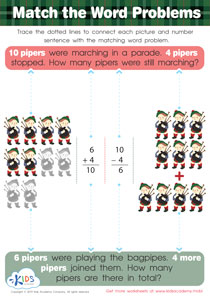Basic Addition Skills Normal Addition Worksheets for Ages 4-9
5 filtered results
-
From - To
Unlock the power of math with our Basic Addition Skills worksheets, designed specifically for children aged 4 to 9! These engaging and interactive normal addition worksheets help young learners build a solid foundation in addition. Each activity encourages practice through colorful illustrations and playful exercises, making math fun and accessible. Whether your child is just beginning or needs a little extra practice, our worksheets cater to all skill levels. Enhance problem-solving abilities and boost confidence with carefully crafted challenges that promote critical thinking. Discover a world of educational resources, and watch your child's math skills flourish with our delightful addition worksheets!
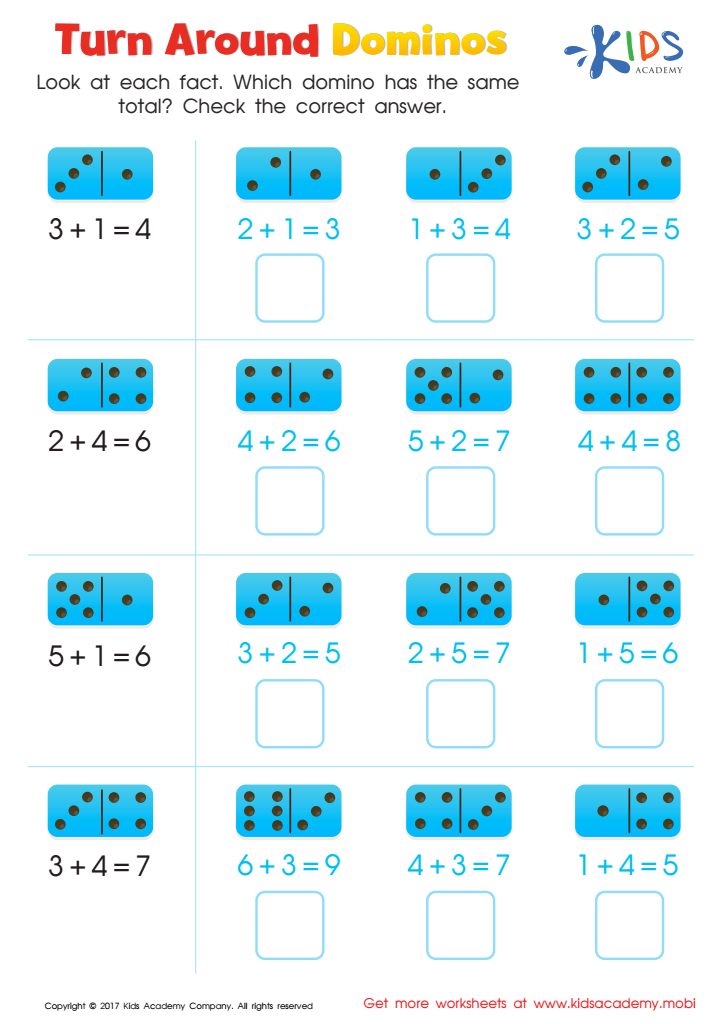

Turn Around Dominos Worksheet
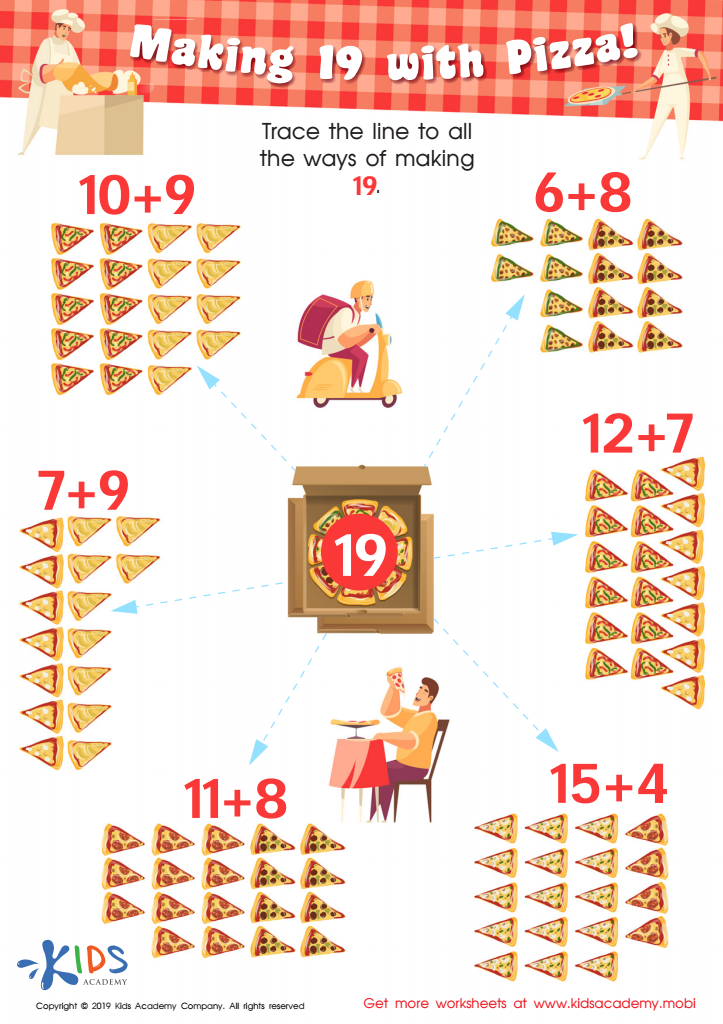

Making 19 with Pizza! Worksheet
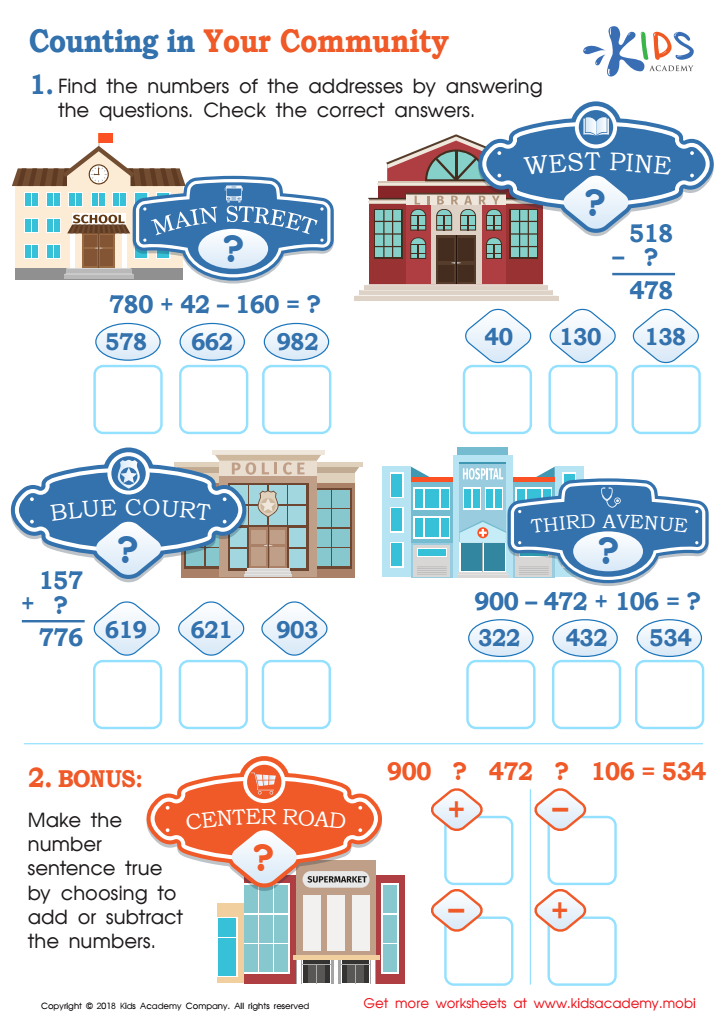

Counting in Your Community Worksheet
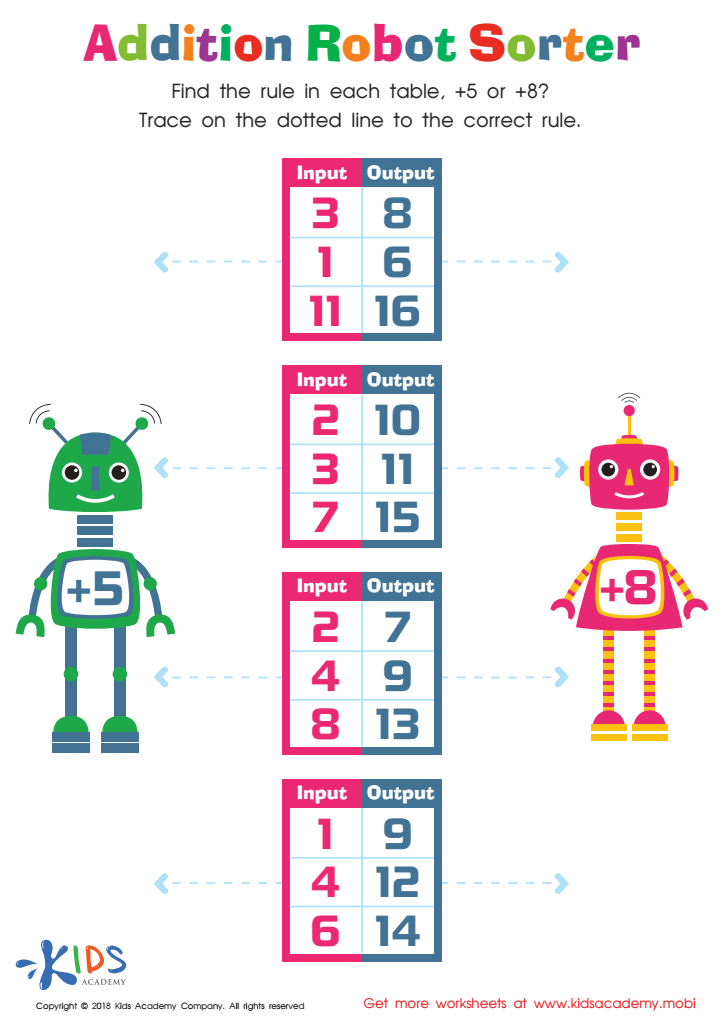

Addition Robot Sorter Worksheet
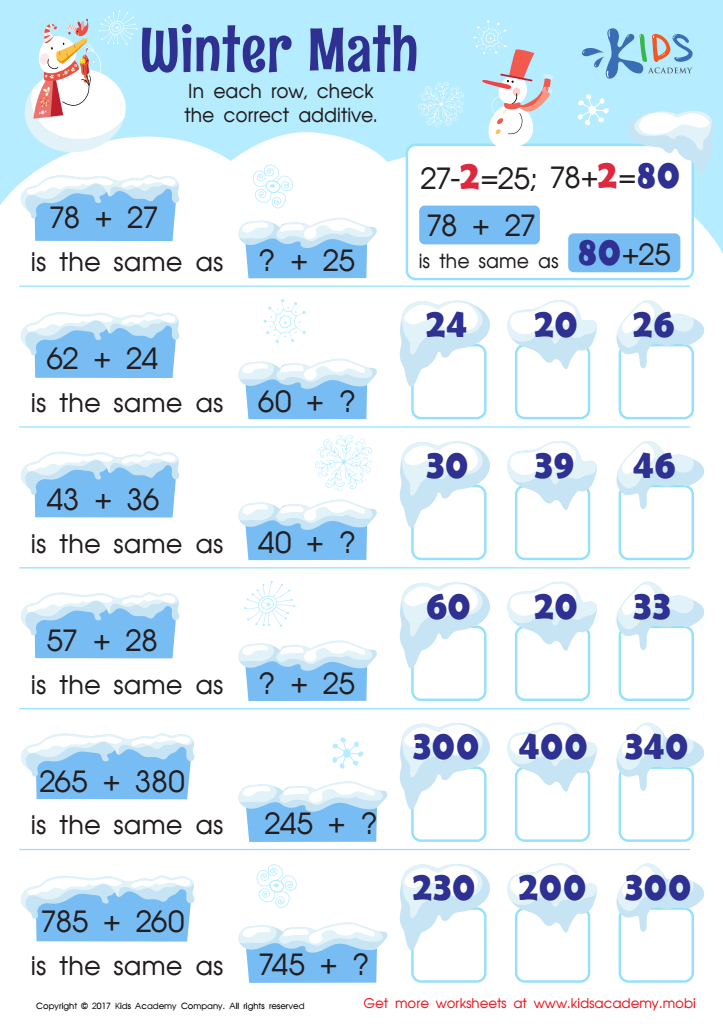

Free Addition Worksheet
Basic addition skills are essential for children aged 4-9, laying the foundation for their mathematical understanding and overall cognitive development. At this tender age, children are increasingly curious, making it the perfect time to introduce concepts that will support their future learning. Mastering basic addition helps enhance problem-solving skills, as children learn to manipulate numbers and understand relationships between them.
Moreover, strong addition skills boost confidence in young learners. When children can successfully perform simple calculations, they feel a sense of accomplishment that motivates them to tackle more complex concepts. Early proficiency in basic math establishes a positive attitude towards learning, reducing anxiety around mathematics later in life.
Additionally, basic addition is vital for daily life situations, from counting objects to understanding time, money, and sharing. Ensuring that children grasp these skills allows them to navigate their world more effectively.
Parents and teachers play a crucial role in fostering this knowledge through engaging activities, games, and practical applications. Supporting children in developing basic addition skills sets them on a path for future academic success and a lifelong love for learning. Therefore, adopting a proactive approach to teaching these skills is essential for holistic childhood development.
 Assign to My Students
Assign to My Students









